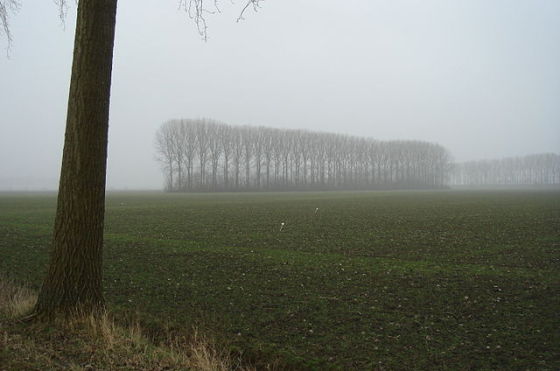Long legal battle ends fight to stop Dutch farmland being returned to sea

A 10 year legal battle over a piece of reclaimed land in Zeeland the size of 350 football pitches came to an end on Friday when the Supreme Court agreed it could be flooded after all.
The decision to flood the polder was first taken in 2005 as part of an agreement between the Netherlands and Belgium to deepen the Westerschelde estuary, allowing bigger ships to reach Antwerp port.
The polder was to be flooded to compensate for the loss of wildlife habitats when the estuary was dredged out, despite widespread opposition.
Locals had campaigned furiously against the plan, arguing that there were sufficient alternatives and that there are doubts about the sort of tidal mudflats which will develop once the farmland is under water.
The owner of the largest piece of the Hedwige polder, Belgian national Gery de Cloedt, refused to sell his land and the state began a long procedure to have him evicted.
The Supreme Court has now ruled that De Cloedt can be removed from the farm and the land can be flooded, ending years of legal wrangling. The size of the owner’s compensation package still has to be finalised, the NRC said.
The Hedwige polder is part of a nature reserve called the Verdronken land of Saeftinghe (the ‘drowned’ land of Saefthinge) in Zeeuws Vlaanderen on the Belgian border. It became a polder – land reclaimed from the sea – in 1907.
Thank you for donating to DutchNews.nl.
We could not provide the Dutch News service, and keep it free of charge, without the generous support of our readers. Your donations allow us to report on issues you tell us matter, and provide you with a summary of the most important Dutch news each day.
Make a donation